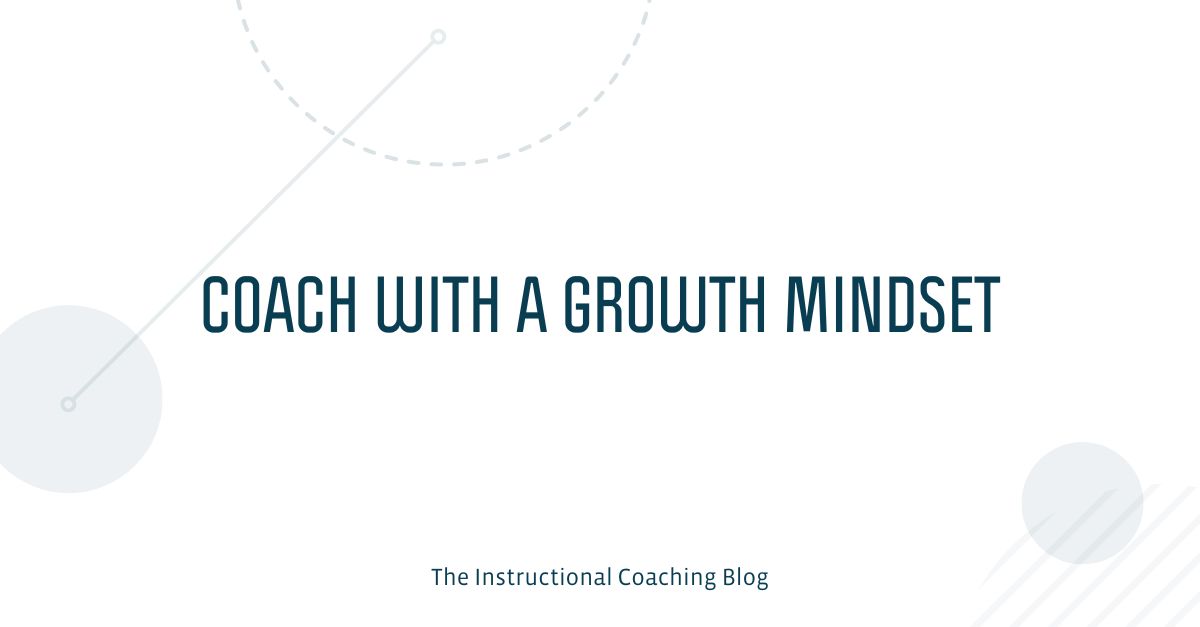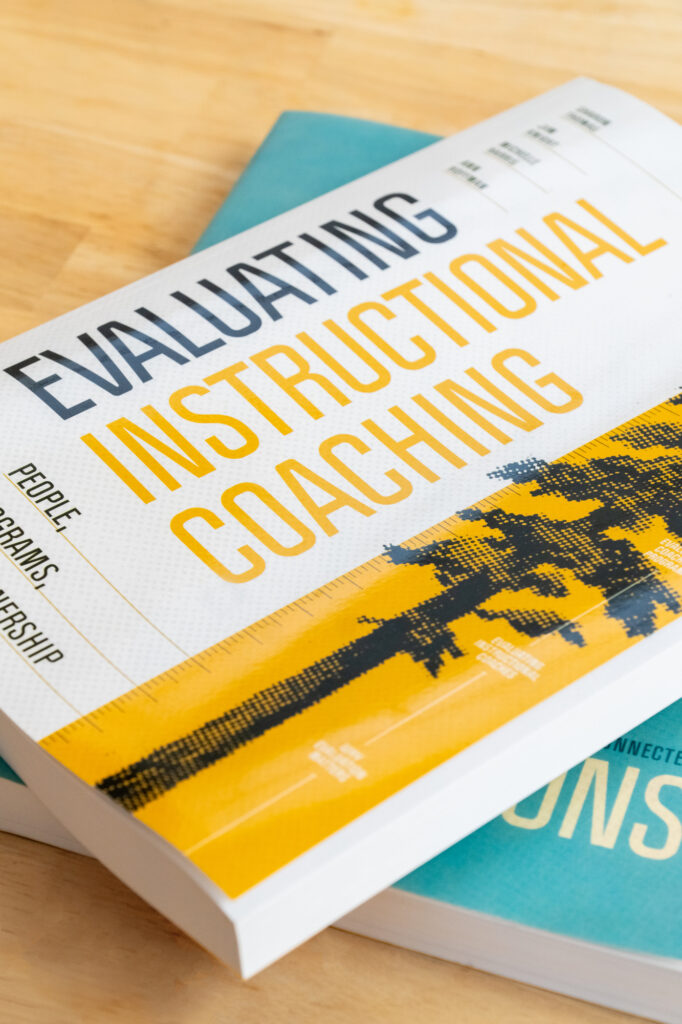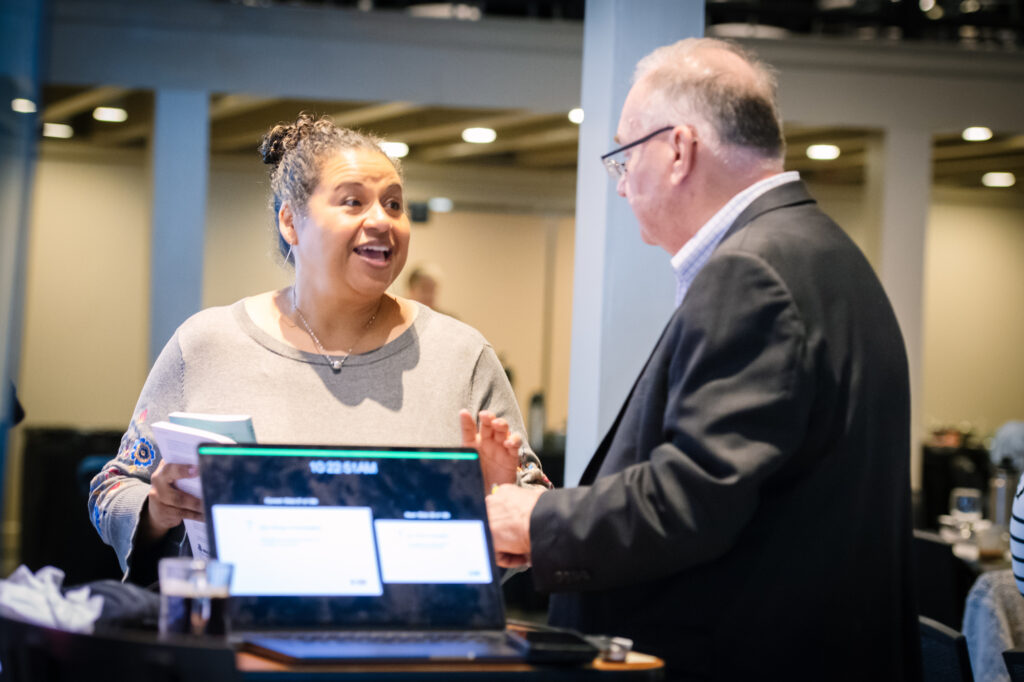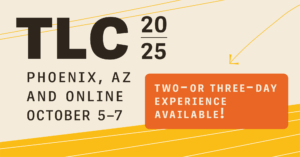Making connections to the benefits of a growth mindset while learning and collaborating is pertinent and helpful for educators, parents, and students. Additional connections were recently made between growth mindset and the impactful practice of instructional coaching during a conference facilitated by Jim Knight.
General ideas in this blog about growth mindset expand on research and information from Carol Dweck. Similarly, instructional coaching recommendations from Jim Knight’s conference also shaped this framework. For example, this is the first time I have discussed and expanded on the key words of benevolence and dialogical that Jim Knight eloquently explained during his conference in Illinois.
Coach With a Growth Mindset Framework
Noted below is an overview table to guide your thinking about the coach with a growth mindset framework. The framework was created to inspire instructional coaches and teachers to be collaborative, optimistic, adaptable, courageous, and humble.

The coach with a mindset framework can transcend interactions, discussions, goals, and progress for individuals and teams. The framework can be shared with teachers, coaches, and administrators as an introductory document. Subsequent discussions can occur multiple times during coaching cycles and school years. Within and among school districts. Reflection about this framework can reinforce habits and illuminate potential positive impacts and outcomes.
Each guiding word in the coach acronym is defined below to guide exploration of five related attributes. Shared examples will help instructional coaches and teachers apply this framework to enhance partnerships and outcomes.
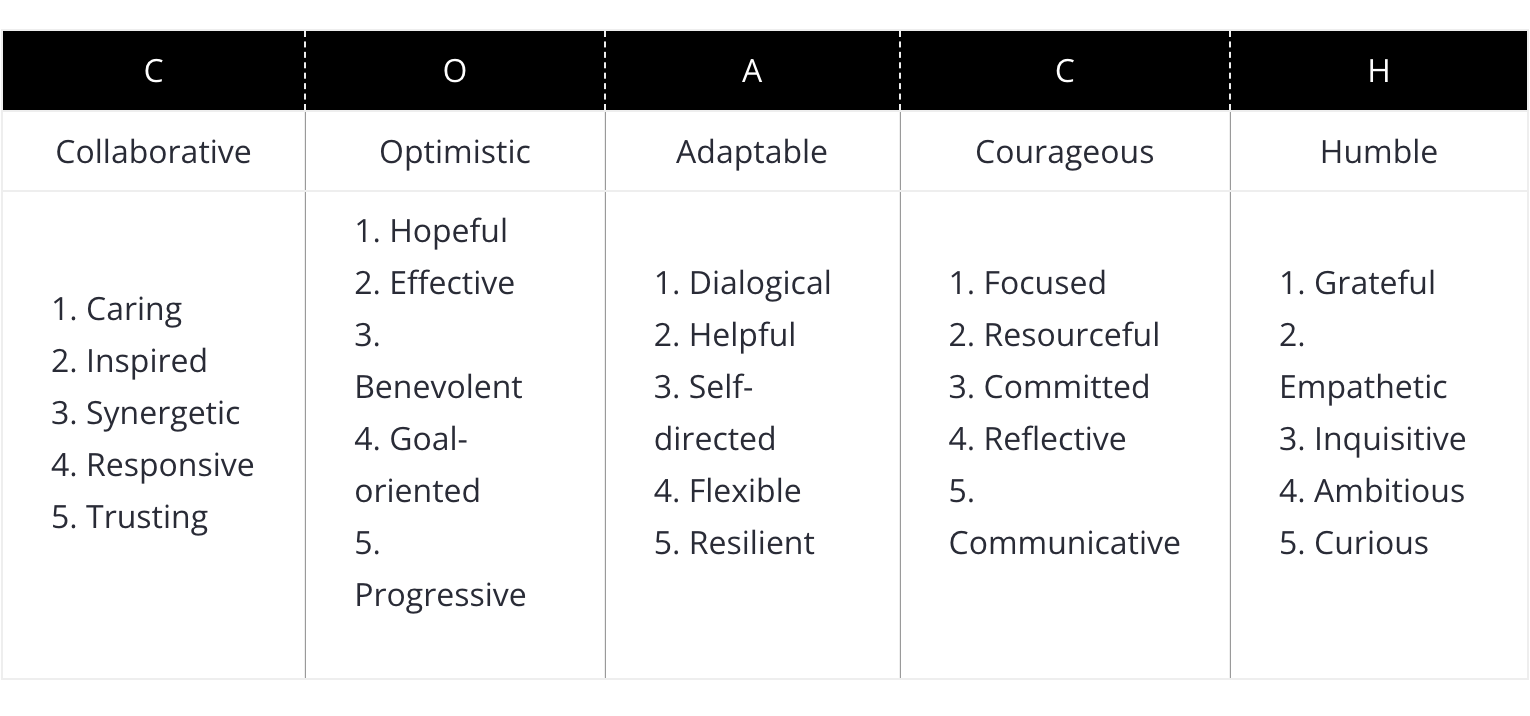
Collaborative
Collaborative can be defined as working together towards a shared purpose. Five related attributes for collaborative behaviors include being 1) caring, 2) inspired, 3) synergetic, 4) responsive, and 5) trusting.
Students will ultimately benefit when educators are
1) creating a psychologically safe and caring partnership,
2) inspired by the success of others rather than competing,
3) synergistically sharing ownership,
4) expecting and learning from ongoing, timely, specific, and constructive feedback while seeking and appreciating different perspectives, and
5) building trust and confidence.
Optimistic
Optimism can be defined as being hopeful and confident about the future. Five related attributes for optimistic behaviors include being 1) hopeful, 2) effective, 3) benevolent, 4) goal-oriented, and 5) progressive.
Students will ultimately benefit when educators are
1) hopeful regarding opportunities, challenges, people, and situations;
2) committed to belief in personal capacity to execute behaviors for desired outcomes (self-efficacy);
3) benevolent with a disposition to be kind and helpful;
4) setting goals, modifying strategies, and assessing progress; and
5) striving for and appreciating continuous improvement and progress.
Adaptable
Adaptable can be defined as changing to align with conditions and needs. Five related attributes for adaptable behaviors include being 1) dialogical, 2) helpful, 3) self-directed, 4) flexible, and 5) resilient.
Students will ultimately benefit when educators are
1) engaged in shared conversations to explore the meaning of something;
2) helpfully, responsibly, and effectively making a difference;
3) modeling and empowering self-directed learning with agency by making and providing choices for others while sharing feedback and helping others use their voice;
4) flexibly and patiently planning options while managing time; and
5) persistently working hard to recover, continue, and improve.
Courageous
Courageous can be defined as bravely adding value and taking calculated risks. Five related attributes for courageous behaviors include being 1) focused, 2) resourceful, 3) committed, 4) reflective, and 5) communicative.
Students will ultimately benefit when educators are
1) composed with focused attention to manage anxiety, address fears of failures, and handle pressure;
2) resourcefully, effectively and efficiently solving pertinent problems;
3) committed and motivated guided by effort, self-talk, energy, focus, and vision;
4) reflective about options, progress, and perspectives; and
5) clearly engaged in two-way written and verbal communication to the correct people at the appropriate time.
Humble
Humble can be defined as the absence of excessive pride or vanity. Five related attributes for humble behaviors include being 1) grateful, 2) empathetic, 3) inquisitive, 4) ambitious, and 5) curious.
Students will ultimately benefit when educators are
1) grateful for opportunities, progress, people, and experiences;
2) empathetically supporting and understanding other people;
3) curiously questioning, inquiring, and wondering;
4) ambitiously modeling and empowering continuous improvement with a growth mindset; and 5) curiously exploring current and future options.
Application for Instructional Coaches and Teachers
Five guiding attributes for this framework were identified and briefly explained. The list of five attributes is not an exhaustive list nor is it prioritized. Rather they are attributes that can guide values, mindsets, beliefs, discussions, reflection, and mantras to enhance vision and support.
Deeper analysis and application can occur by reflecting about example behaviors of instructional coaches and teachers. Noted below are example targeted behaviors and mindsets for instructional coaches and teachers aligned to each guiding word in the coach acronym. For example, starting with collaboration, targeted behaviors and mindsets for caring are highlighted. The tables provide side-by-side comparisons between instructional coaches and teachers.
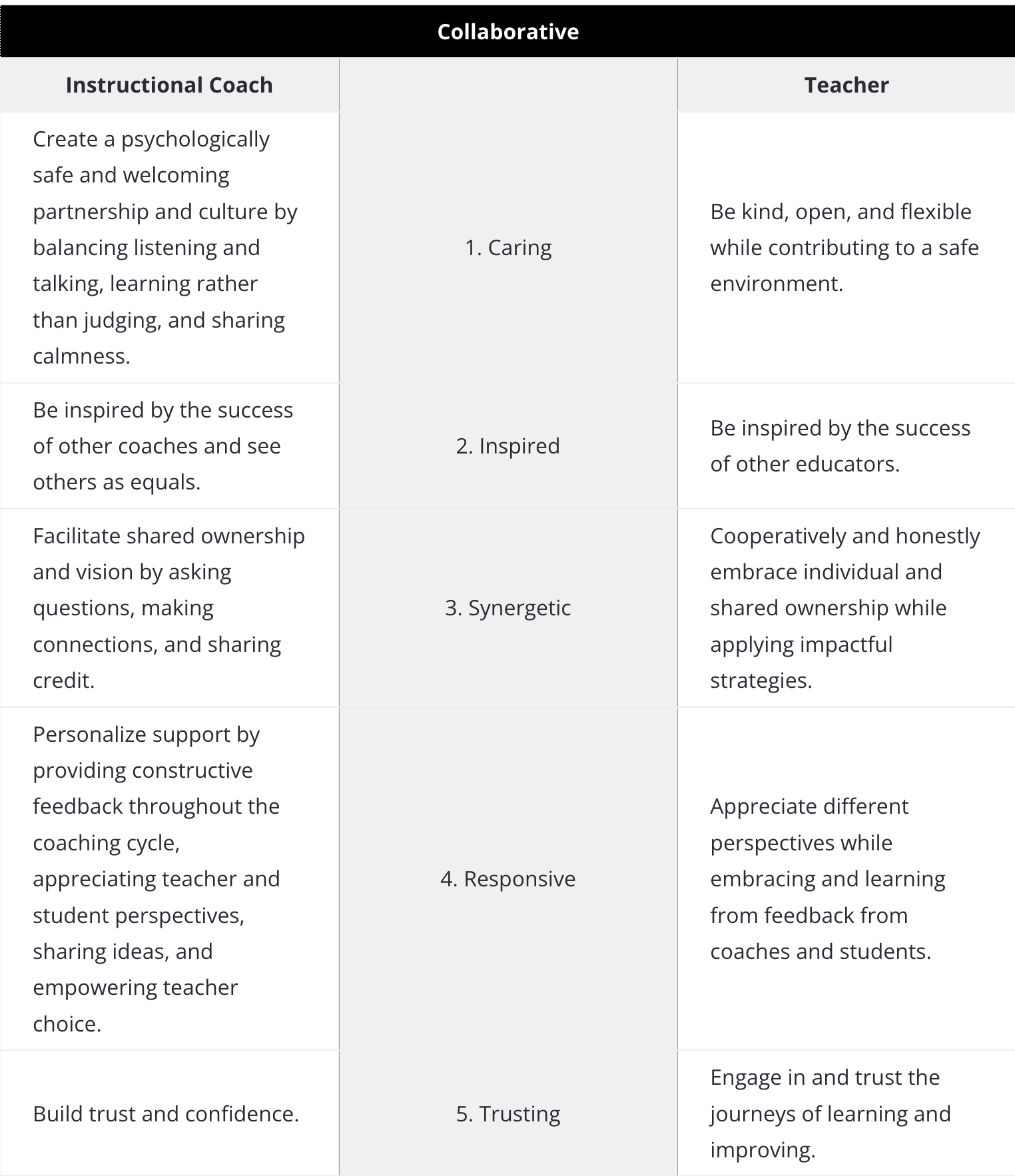
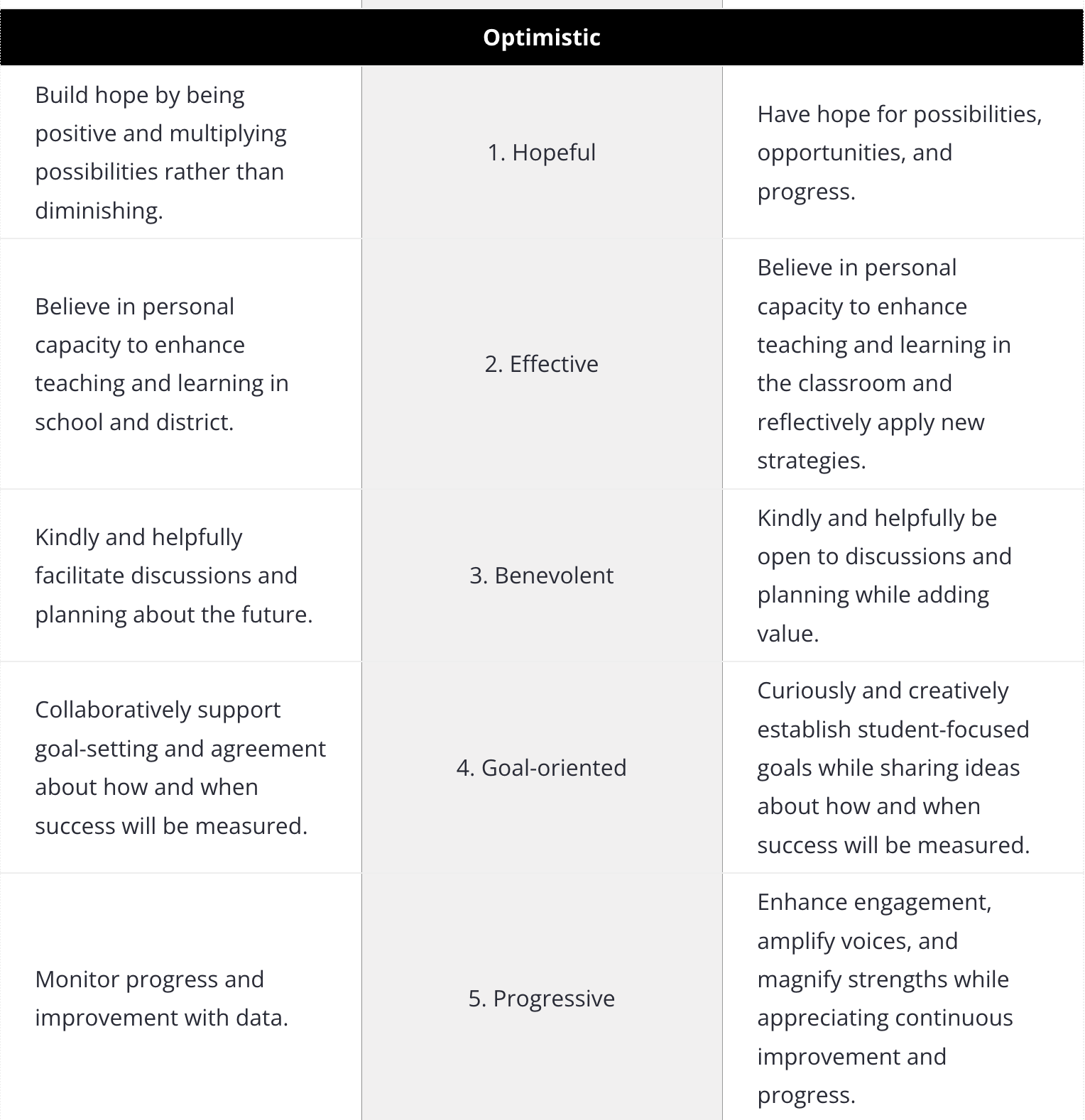
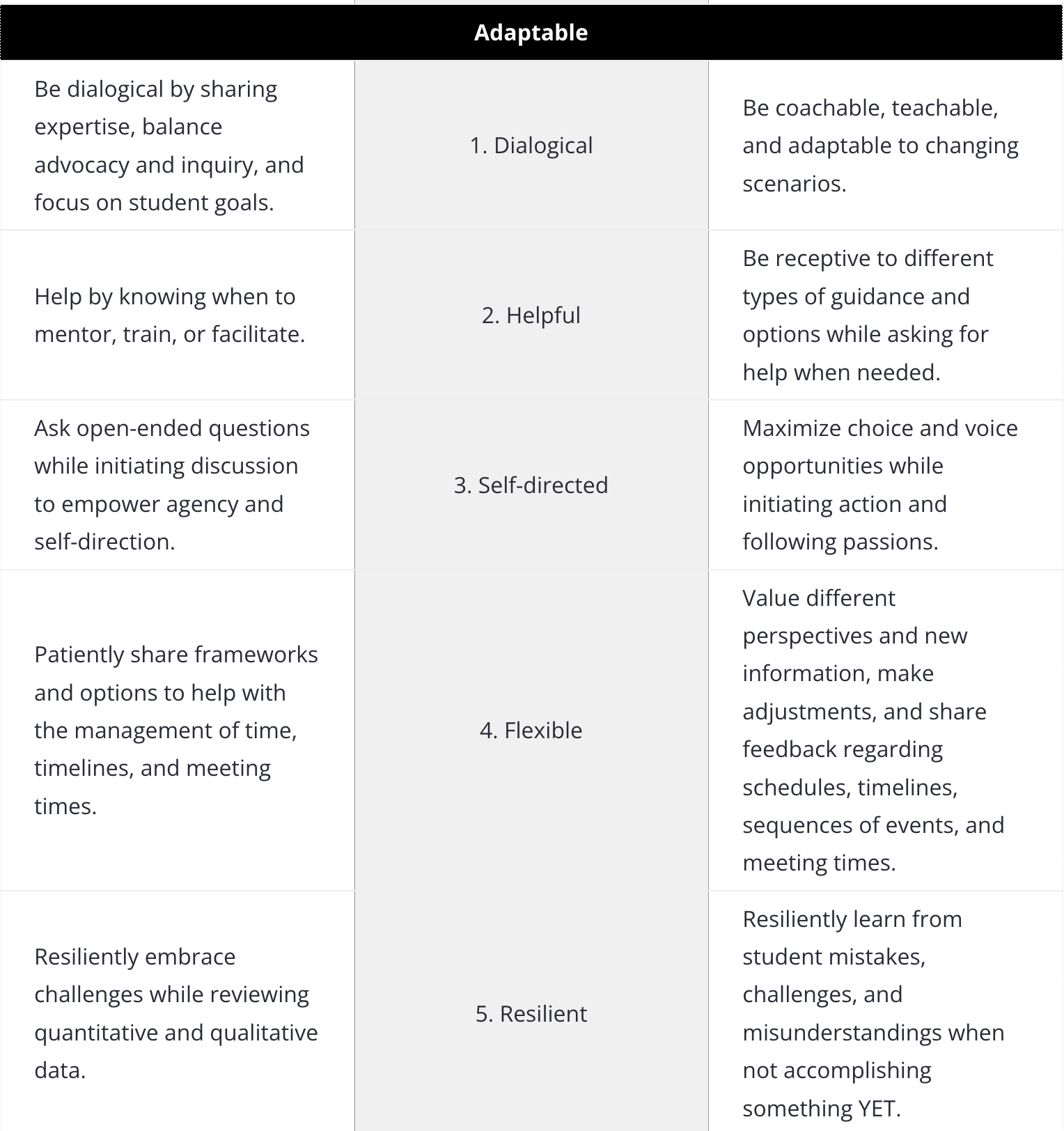
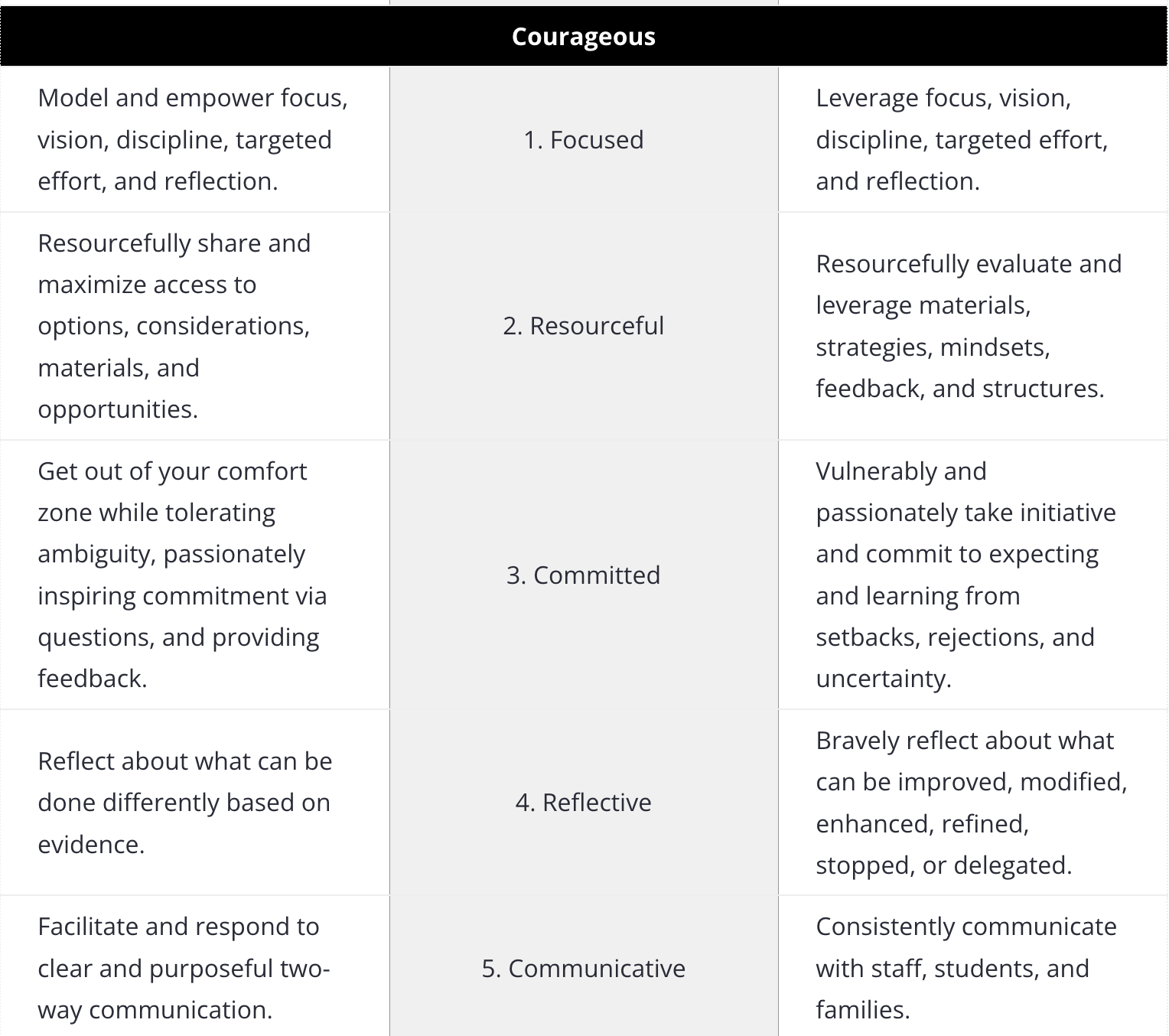
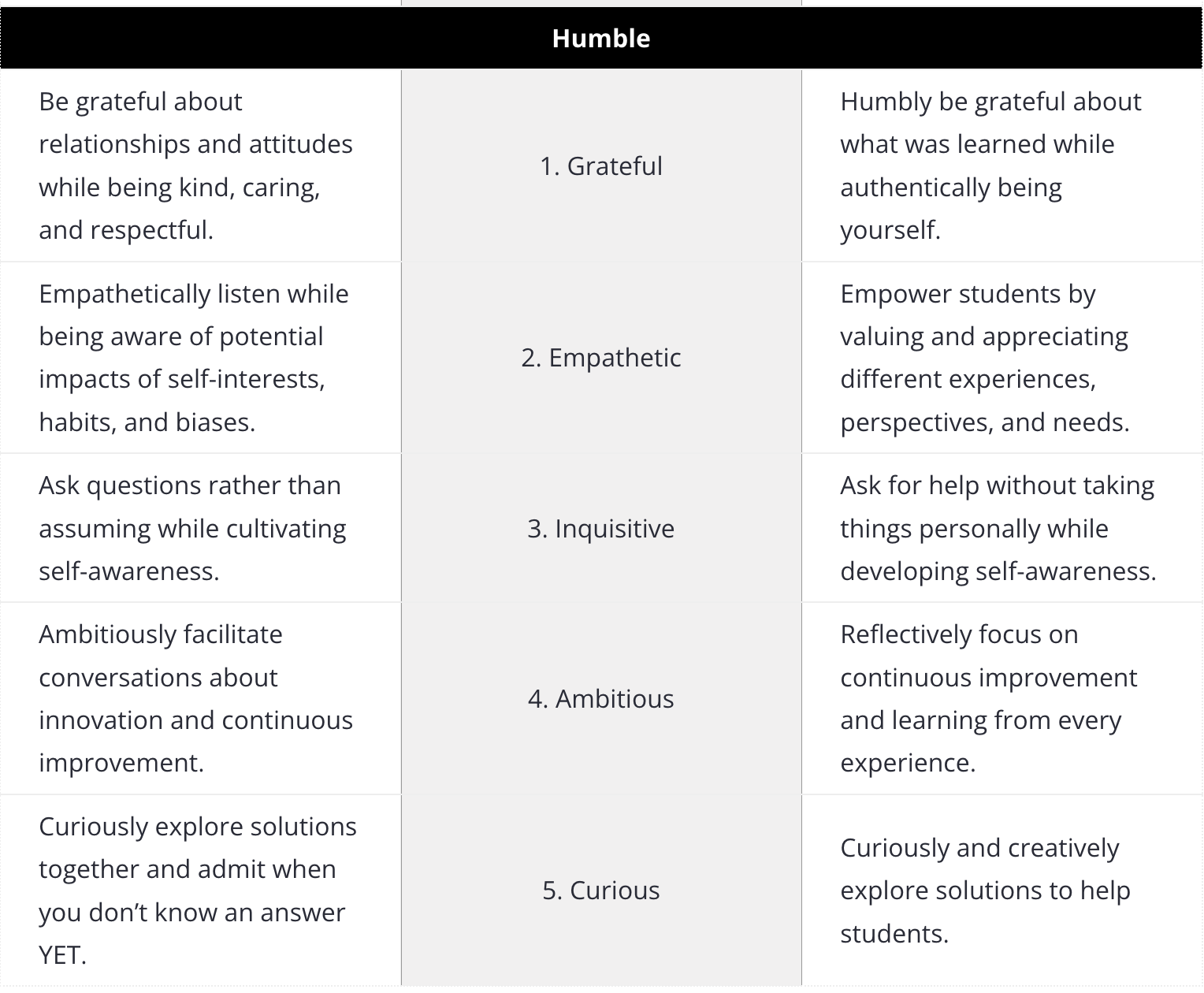
Reflection and Discussion Questions
The questions below can inspire reflection and application of the coach with a growth mindset framework in your school district. Maximize the impact by discussing with colleagues.
- How could you use the coach with a growth mindset framework to assess and/or enhance current behaviors of instructional coaches and teachers in your school district?
- Which guiding attributes (collaborative, optimistic, adaptable, courageous, or humble) are educators in your school district doing best at? How could you celebrate this?
- Which guiding attributes (collaborative, optimistic, adaptable, courageous, or humble) could educators in your school district improve? How could you guide improvement?
- How can the coach with a growth mindset framework facilitate conversations or common language for current initiatives or areas of focus in your classroom, school, or school district?
- What other attributes enhance the effectiveness, partnerships, or outcomes of instructional coaching?
- How could you use the coach with a growth mindset framework to assess and/or enhance current behaviors of instructional coaches and teachers in your school district?
- Which guiding attributes (collaborative, optimistic, adaptable, courageous, or humble) are educators in your school district doing best at? How could you celebrate this?
The coach with a growth mindset framework was created to inspire and enhance systematic instructional coaching interactions. However, the framework could also be enhanced to connect with coaching athletics and being an effective leader. I would love to continue to reflect about and discuss other connections with this framework as we collaboratively improve every day, week, and year. Please share comments with me via Twitter (@Erik_Youngman).

Erik Youngman
Assistant Superintendent | Author | Speaker | Consultant
Dr. Erik Youngman is an education leader who is passionate about topics such as homework, growth mindset, grading, and leadership. Published books he has written include, “The Magic of Growth Mindset,” and “12 Characteristics of Deliberate Homework,” as well as a chapter for, “100 No-Nonsense Things That All Teachers Should Stop Doing.” Erik has also written numerous blogs about growth mindset and grading.
Many of my previous blogs and books discuss aspects of learning with a growth mindset.
Contact Erik on Twitter at @Erik_Youngman
